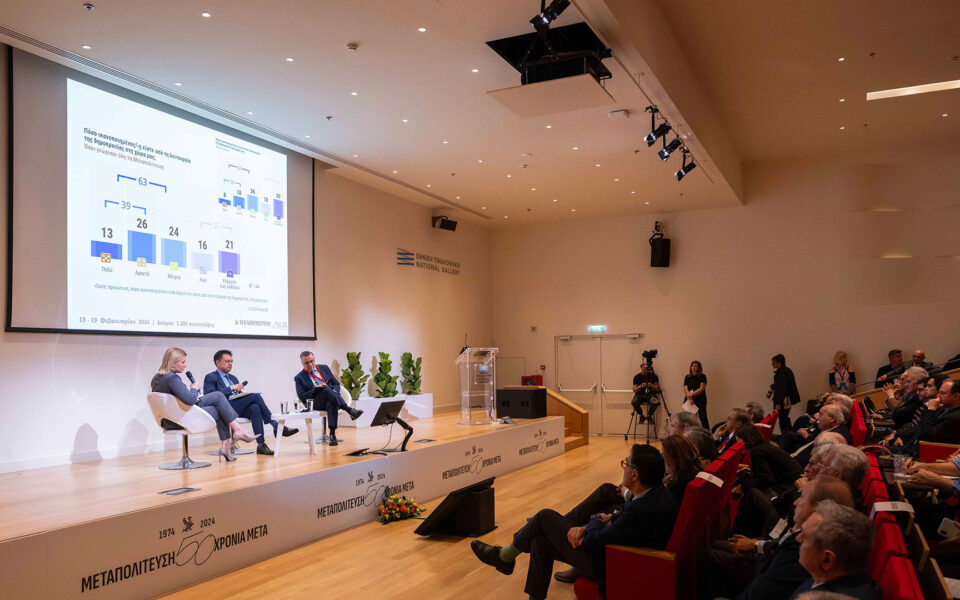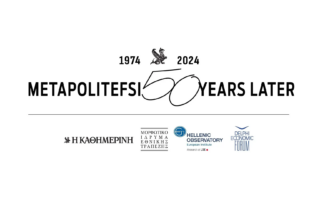Poll examines generational gap in perceptions of Metapolitefsi

A public opinion poll presented on the first day of a three-day conference on “50 Years of the Metapolitefsi” in Athens on Thursday examines different generational perspectives on Greece’s return to democracy after the fall of the 1967-1974 military dictatorship.
The survey was carried out by polling firm Pulse and its findings were presented by its CEO, George Arapoglou, at the ongoing conference.
According to Arapoglou, the poll broke down its findings between respondents “who lived through the period of the Metapolitefsi, meaning that they were at least 10 years old when the dictatorship fell,” and the other age groups.
According to both categories of citizens, Greece’s orientation has been at the center of the political spectrum through the period, with 42% of the 60+ age group and 36% of others agreeing that this was the ideology which prevailed after the fall of the junta.
There is also a good deal of convergence between the two categories regarding in which direction the center leaned, with 27% of the 60+ and 29% of other seeing a more conservative, right-wing trajectory, and just 14% in both contingents seeing a leaning toward the left. However, 13% of the first category and 15% of the second believe that neither camp’s ideas prevailed over the other.
Asked to assess the contribution of the two political leaders who had the greatest impact on this period of Greece’s history, center-right Konstantinos Karamanlis and center-left Andreas Papandreou, respondents in the first category gave then an even score of 45%, while the category with all the other age groups showed a preference for Papandreou (45%) over Karamanlis (37%).
“There is some divergence between the two groups, though the overall picture is not that different. Andreas Papandreou’s style may suit the present day more and there’s also the chronological convergence with the Papandreou period of younger age groups,” Arapoglou said.
The two categories also feel differently about how democracy is functioning in this country, with 13% of older respondents and 8% of younger ones being very satisfied, and 21% of the former and 30% of the latter being satisfied to a very small if any degree.
As for the country’s overall trajectory, 47% of the “Metapolitefsi generation” believe it has changed for the better, against 16% who see it stagnating and 25% who say it is not doing well. Among the younger generations, a smaller 33% say it has changed for the better, but 34% believe it is on a positive course, against 21% who see it stagnating.





